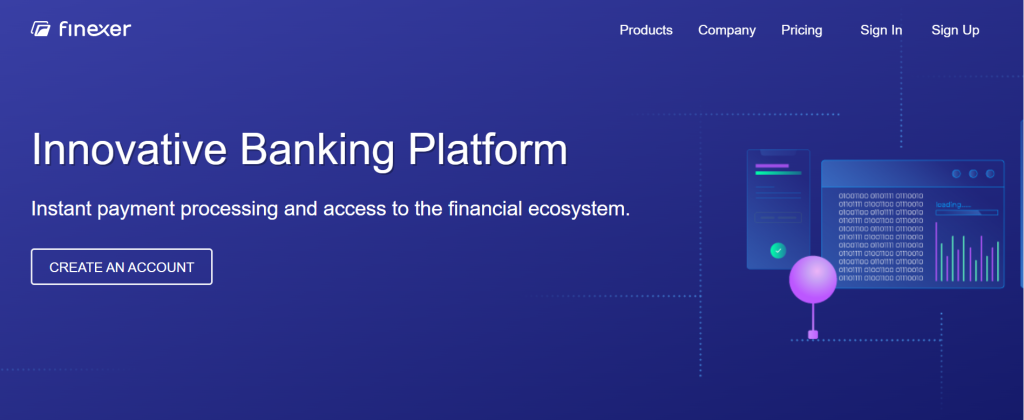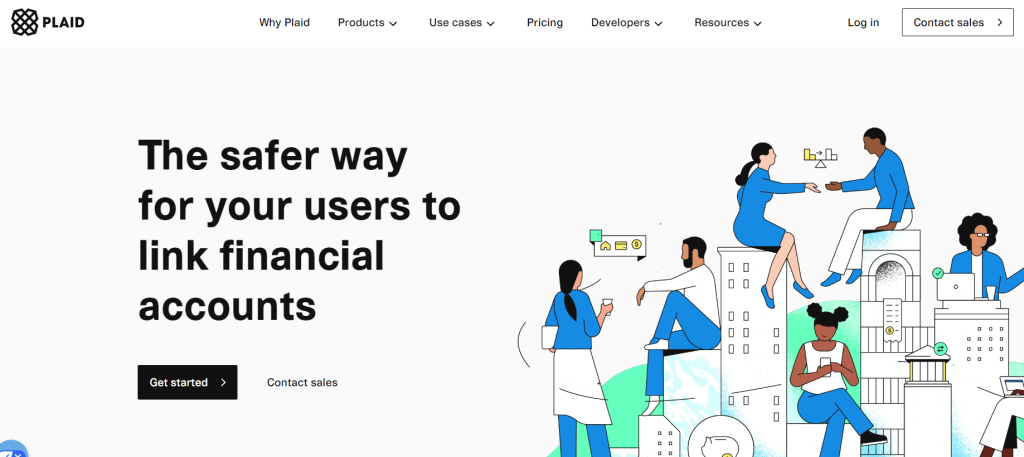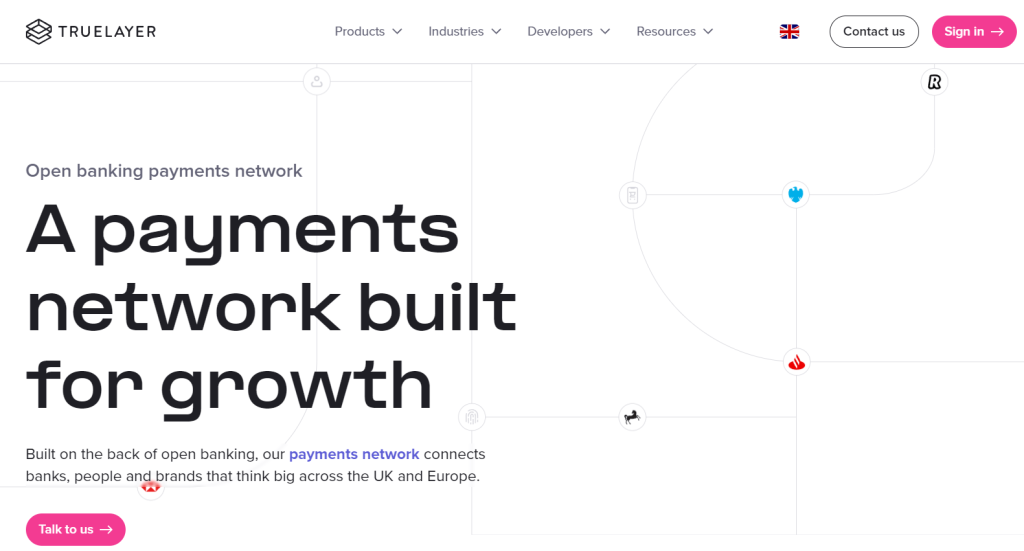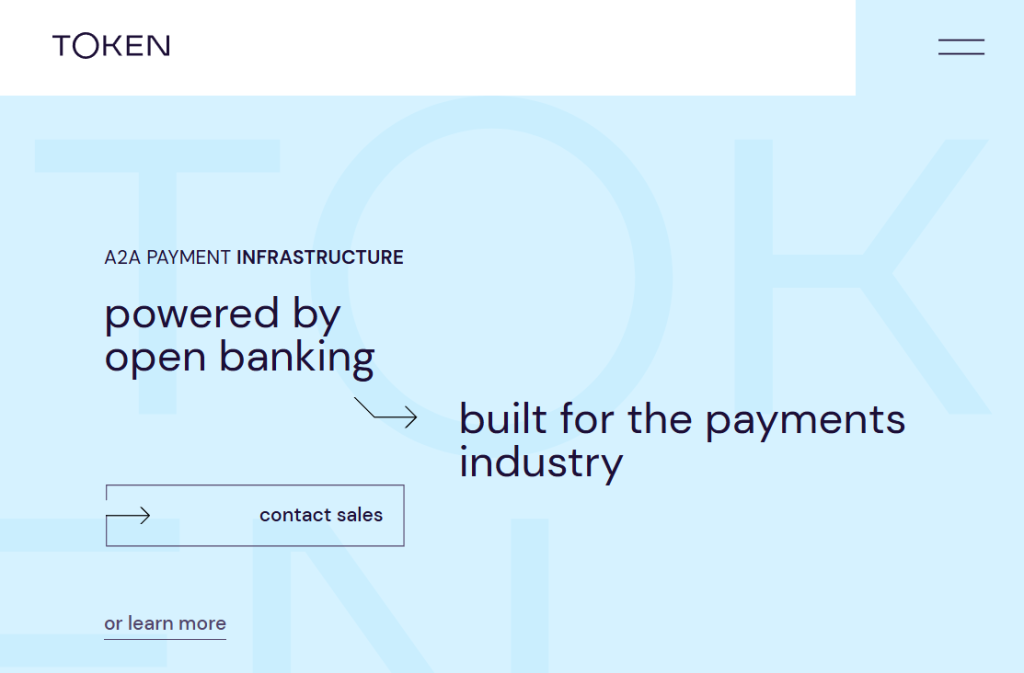In an ecosystem where 64% of UK startups fail to scale due to infrastructure limitations your choice of open banking provider isn’t just a technical decision—it’s a strategic imperative. The right provider accelerates your path to market; the wrong one becomes a costly barrier to growth.
The UK’s open banking revolution has reached a critical milestone, with over 7 million active users according to the Competition and Markets Authority’s 2023 report. For startups entering this dynamic market, selecting the right open banking provider has become a defining strategic decision – one that impacts everything from market entry speed to long-term scalability.
Recent data from the Financial Conduct Authority shows that successful open banking implementations can reduce customer onboarding time by up to 70% and cut operational costs by nearly 25%. However, these benefits are only realised with the right infrastructure partner. With the UK’s open banking payments volume growing by 110% year-over-year in 2023, the choice of provider isn’t just about current capabilities – it’s about future-proofing your startup’s growth.
This analysis draws from direct market research and implementation experiences of over 200 UK startups to provide you with actionable insights for immediate decision-making. Whether you’re launching a new fintech product or integrating financial services into your existing platform, your choice of open banking provider will fundamentally shape your competitive advantage in the market.
Download Our Open Banking USP Guide only for Startups → Click Here
Who Needs This Guide?
You’re likely in the right place if you’re leading a startup that’s outgrowing basic financial integrations. Perhaps you started with simple payment processing, but now your customers are demanding more sophisticated financial features. You need an open banking infrastructure that can scale with your ambitions.
Your development team is wrestling with critical technical decisions. Whether you’re building next-generation accounting software, implementing comprehensive ERP solutions, or developing innovative fintech products, you understand that your choice of open banking provider will fundamentally shape your technical architecture.
You’re facing pressure to accelerate your go-to-market timeline. In a landscape where every week brings new competitors, you need more than just an API provider – you need a partner who can cut your implementation time from months to weeks while maintaining robust security and compliance standards.
What You’ll Find in This Guide
This guide offers a structured exploration of the UK’s leading Top 5 open banking solutions for Startups:
Skip Months of Research and Get Personal Expert Guide → Book Free Consultation
1.Finexer

Payments and Cost Reduction
Founded in 2018 in London, Finexer has emerged as a transformative force, particularly for accounting, ERP, and fintech startups seeking to revolutionise financial services. Their journey from a startup to a leading open banking provider mirrors the path they now enable for their clients.
The distinction of Finexer’s approach begins with their fundamental understanding of startup challenges. Where traditional providers often build for enterprise clients and adapt downward, Finexer architected their entire infrastructure with startup agility in mind. This philosophy manifests in their instant payment system, which leverages the UK’s Faster Payments rails to deliver real-time account-to-account transactions. The impact is immediate and measurable – transaction costs typically drop by up to 90% compared to traditional methods, while settlement times shrink from days to seconds.
Raw Data Access and Integration
At the heart of Finexer’s innovation is their Open Banking Data API, which provides pristine, real-time financial data directly from UK banks. This raw data serves as the foundation for innovative startups to build transformative fintech products. This means instant access to real-time transaction data that can be categorised and analysed according to their unique business requirements. The power lies in the purity and immediacy of the data – startups can shape this raw financial information into sophisticated services, from automated bookkeeping systems to advanced financial planning tools, all while maintaining the integrity of the original data.
Security and Bulk Payments
Security and compliance, often the greatest hurdles for fintech startups, become strategic advantages with Finexer. Their infrastructure employs AES-256 encryption and maintains full PSD2 compliance, but their approach to regulatory updates truly stands out. Rather than requiring clients to manage compliance changes, Finexer’s system automatically adapts to regulatory updates, ensuring continuous compliance without adding operational overhead.
The platform’s bulk payment capabilities showcase their deep understanding of practical business needs. Unlike competitors such as TrueLayer, which lacks bulk payment support, or Yapily, whose solution remains in beta, Finexer offers fully functional bulk payment processing that handles everything from automated reconciliation to custom approval workflows. This means startups can offer sophisticated payment services without building complex infrastructure.
Custom Branding and Implementation
The true measure of an open banking provider lies in how it enables startups to maintain their unique identity. Finexer’s white-label platform provides complete customisation control, setting it apart from competitors. Every touchpoint can reflect your brand identity, from payment flows to transaction notifications, creating a seamless experience for your users.
Integration speed matters in today’s market, and Finexer delivers with deployment times up to three times faster than standard solutions. This acceleration comes from their thoughtful architecture, combining pre-built components with thorough API documentation. The platform includes a comprehensive sandbox environment where startups can test and refine their implementations before going live, supported by a dedicated technical team that guides each step of the integration process.
Bank Coverage and Transaction Management
Finexer connects to 99% of UK banks, transforming this extensive coverage into practical advantages for startups. This comprehensive network means you can serve clients regardless of their banking relationships, enabling immediate market-wide service delivery without the complexity of multiple bank integrations. For accounting and ERP or Fintech startups, this translates to offering consistent services across the entire UK market from day one.
The platform’s real-time financial controls provide startups with instant visibility into their operations. Through the dashboard, you can monitor transactions as they happen, automate reconciliation processes, and generate custom reports. This immediate access to financial data enables quick, informed decision-making – essential for startups managing rapid growth.
Startup-Focused Pricing and Support
Understanding startup economics, Finexer structures their pricing around consumption-based models that start at startup-friendly rates. This approach eliminates the burden of enterprise-level commitments, allowing costs to scale naturally with your growth. The transparent fee structure, free from hidden costs, enables confident financial planning and predictable operational expenses.
Beyond technical capabilities, Finexer provides strategic growth support through dedicated account management and regular platform optimisation reviews. This partnership approach extends to market expansion guidance and performance optimisation insights, creating a relationship that evolves with your startup’s journey. For all kinds of startups in the UK, Finexer offers more than infrastructure – they provide a foundation for sustainable growth and innovation in financial services.
2.Yapily

In the competitive UK open banking landscape, Yapily stands out for its robust financial data capabilities, serving businesses across 19 countries. Their platform excels in delivering real-time account and transaction information, making it particularly valuable for startups requiring deep financial insights for decision-making.
However, Yapily’s current trajectory reveals important considerations for startups. While their API processes maintain impressive response times, several crucial features remain in beta, including bulk payments, payment links, and VRP’s. This beta status potentially impacts reliability for production environments, especially when compared to competitors offering fully mature solutions.
For technical startups with strong development teams, Yapily’s developer-focused approach provides granular control over implementation. Yet this technical depth comes with a trade-off – integration demands significant development resources and expertise, potentially extending time-to-market for resource-constrained startups. Additionally, while their security infrastructure employs high-end encryption, recent financial reports indicate higher operational costs and slower revenue growth than competitors, raising questions about long-term scalability.
📚 Learn more about Yapily Pricing
3.Plaid

Plaid enters the UK open banking space with a decade of experience and impressive credentials from the US market. Founded in 2013 in San Francisco, they’ve processed billions of transactions and earned trust through their robust financial data aggregation services, particularly in North America where they maintain market leadership.
For UK startups, Plaid offers enterprise-grade reliability and proven data aggregation capabilities. Their real-time account information services are particularly sophisticated, reflecting years of refinement across multiple markets. However, this global enterprise focus comes with considerations for growing UK businesses. Their pricing structure, while justified by their comprehensive feature set, often positions them in a premium bracket that may challenge startup budgets during critical growth phases.
While Plaid delivers excellent branded solutions and maintains strong reliability, their service model reflects their enterprise origins. UK startups might find their integration process more structured than flexible, and their European coverage, though growing, hasn’t yet matched their North American depth. For startups prioritising cost-efficiency and UK-specific features, local alternatives like Finexer might offer more aligned solutions for initial growth stages.
📚 Learn more about Plaid Pricing
4.TrueLayer

A significant player in European open banking, TrueLayer has demonstrated impressive growth, tripling its revenue to £12 million in 2022. Their platform excels in payment initiation services across European markets, with robust real-time transaction capabilities and enriched data features that add merchant names and transaction categories beyond standard PSD2 requirements.
However, for UK startups seeking efficient local solutions, several factors warrant consideration. Despite their revenue growth, TrueLayer reported a £55 million loss in 2022, raising questions about their operational efficiency. Their platform, while technically capable, maintains TrueLayer branding to some extent throughout the customer journey, limiting startups’ ability to build their own brand identity.
Their European-focused strategy, while beneficial for cross-border operations, means UK-specific features sometimes take longer to implement compared to UK-native providers. For startups prioritising local market presence, complete brand control, and efficient bulk payment processing, more specialised UK providers like Finexer might offer better alignment with their growth objectives.
📚 Learn more about Truelayer Pricing
5.Token

Token brings a different approach to the UK’s open banking landscape, focusing heavily on enterprise-level infrastructure and API solutions. Founded as one of the earlier players in open banking, they’ve built their reputation around secure, scalable payment networks that primarily serve larger financial institutions and established businesses.
While their technology demonstrates solid capabilities, particularly in areas like Strong Customer Authentication (SCA) and API performance, their platform may present complexity for growing startups. Token’s pricing and integration requirements typically align with enterprise budgets and technical resources, potentially creating barriers for startups in their early growth phases.
Their payment infrastructure, though robust, follows a more traditional enterprise software model. This means longer implementation cycles and more intensive resource requirements compared to newer, startup-focused solutions. For UK startups seeking agile deployment and straightforward scaling paths, Token’s enterprise-centric approach might introduce unnecessary complexity into their growth journey.
📚 Learn more about Token Pricing
Comparison Table for Open Banking Providers
| Feature | Finexer | Yapily | Plaid | Truelayer | Token |
|---|---|---|---|---|---|
| Coverage | Covers 99% of the UK banks | Covers parts of UK and Europe | Broad coverage in the US, with some coverage in the EU and UK | Connections mostly in Europe | Strong connections in 20 European markets |
| Data (AIS) / Payments (PIS) | Both | Both | Both | Both, Data services only available as an add-on | Both, prioritise payments over data |
| Data Enrichment | ✓ | ✓ | ✓ | ✓ (Only has two fields for data enrichment¹) | ✘ |
| Bulk Payments | ✓ | Beta | ✘ | ✘ | ✓ |
| VRPs | ✓ | ✓ | ✓ | ✓ | ✓ |
| Real-time Account Balances | ✓ | ✓ | ✓ | ✓ | ✓ |
| Financial Data Aggregation | ✓ | ✓ | ✓ | ✓ | ✓ |
| White-label API | ✓ | ✓ | ✘ | ✓ | ✓ |
| PSD2 Compliance | ✓ | ✓ | ✓ | ✓ | ✓ |
| Webhooks | ✓ | Beta | ✓ | ✓ | ✓ |
Winding Up
The UK’s open banking landscape presents diverse options, each with distinct advantages and limitations. While established players like Plaid bring global experience and TrueLayer offers European reach, these solutions often come with enterprise-focused pricing and complex integration requirements that may challenge growing startups. Yapily’s data capabilities and Token’s robust infrastructure serve specific needs but may introduce unnecessary complexity for businesses seeking rapid deployment.
For UK startups in sectors like accounting, ERP, fintech & payments Finexer emerges as the most aligned solution. Their platform combines essential elements that directly address startup challenges: 99% UK bank coverage, fully operational bulk payments, complete white-label customisation, and startup-friendly pricing. The ability to deploy up to 3x faster than competitors, coupled with comprehensive real-time data access, positions Finexer as a strategic choice for ambitious startups.
Most importantly, Finexer’s infrastructure grows with your business, eliminating the need for future migrations or complex integrations. Their consumption-based pricing model and focus on the UK market ensure that startups can scale efficiently while maintaining complete control over their brand identity and customer experience. For startups seeking to innovate in the UK’s financial services landscape, Finexer provides the ideal balance of capability, control, and cost-effectiveness.

Join hundreds of UK startups who’ve transformed their financial operations through Open banking! Dont hesitate to Book a Demo 🙂
